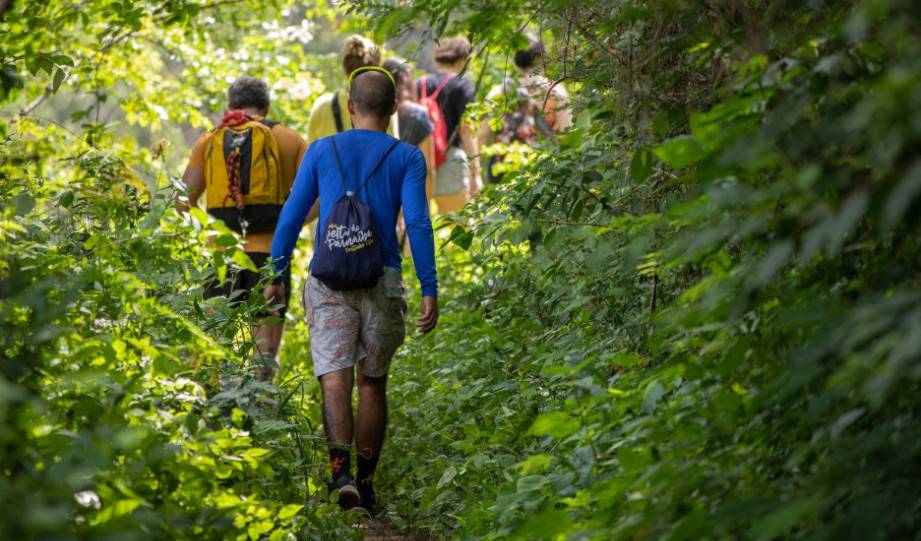Hiking is one of a handful of outdoor activities we can engage in, especially if you are one like us who loves communing with nature.
It is the many splendid things you encounter on the trail that make you love hiking more. This includes the way trees bend their branches, hoots of the birds, hoofs of land animals, and the breeze that envelops you in the middle of the hike.
We can continue to enjoy the luxury of these natural blessings only if we continue to be responsible hikers.
It does not take much to safeguard the outdoors. Actually, it’s pretty simple. Here are 5 simple ways on responsible hiking and how you can be eco-conscious on the trail.
1. Do Not Leave Your Trash Behind
Leaving your trash has never been acceptable when it comes to hiking. Whatever you brought in, you should take away with you as you leave the trail. It’s actually one of the tenets of the Leave No Trace principle.
It’s one way of maintaining the cleanliness of the surroundings, but it’s also a sign of respect for the environment.
Even organic waste shouldn’t be left behind. It’s only proper that you bring a bag that’s dedicated to your trash. Then you can discard it at the nearest waste segregation area at the end of the trail, or when you get home.
We are not Hansel and Gretel. Let’s not leave crumbs, a.k.a. trash, along the way.
2. Bring Reusable Items
Bringing reusable items lessens the amount of waste that we carry during the hike.
A reusable water bottle keeps you hydrated throughout the adventure. At the same time, it gives you pride that you don’t have to buy a couple of water bottles every time you decide to hike.
If you think water bottles are too bulky, you can opt for the foldable ones to squeeze them inside your backpack. Other options are lightweight and easy to carry around.
As for your food packaging, you can use a cloth instead of plastic wrap to cover your sandwich. You can also use reusable containers for your trail nuts.
PRO TIP: Aside from helping you stabilize your trek, you can repurpose your hiking poles in many ways. You can use it to raise a tent, pick up your trash, or move external elements that block your way.
3. Respect the Local Wildlife
This is another tenet of the Leave No Trace principle. We know how tempting it is to approach animals in the wild. We know you mean well and that you only want to say a few hellos.
But keep reminding yourself that these are wildlife. They are not used to humans invading their spaces.
One reason why you should not get in the way of these wild animals is that they might react aggressively. A single step towards their territory could mean a threat for them, so don’t stake your cards.
The point is, we should learn how to respect these animals. The forest where you’re hiking is their habitat. It’s their home, and if you disturb them in any way, you can’t expect them not to retaliate.
Humans should value the distance between the hiking trail and the guarded areas where these animals are.

Read More:
4. Know Where To Set Up Camp
Knowing where to set up your camp for the night can mean a great deal for the environment. Some areas might be sensitive and could be harmed by your tents.
A vegetation patch, for example, should be avoided. It could be a food source for most wildlife in the area, so try avoiding such spots.
If you’re to pick which place to set up camp, make sure that you choose one that’s naturally clear. Doing so ensures that you’re not harming any environmental element during the process.
A view might be your number one priority, but let’s change that from now on. This ensures that the environment’s safety should be your top reason for setting up camp.
5. Be Careful About Fires
When hiking, there’s sometimes the need to build yourself a fire. Otherwise, you cannot cook, boil water, or keep yourself warm.
But be mindful when it comes to fires. You do not want to be the cause of burning the place down because you did not take preventive measures.
Wildfires are incredibly disheartening. Avoiding areas with elements that could easily catch fires is one way of saving the environment, not to mention the wildlife within the zone.
There are areas with fire regulations in place, like picnic zones and specific campsites. However, other hiking trails do not allow building fires. Be sure to be aware of this information so you can avoid violating any rules during the hike.
Conclusion
The key to being a responsible hiker is to follow the rules. They were put in place to ensure that you and the next hikers can enjoy the beauty of nature without destroying it.
So the next time you go out, make sure that you’re being more eco-conscious on the trail by following those 5 tips I’ve outlined above. The environment will thank you.


